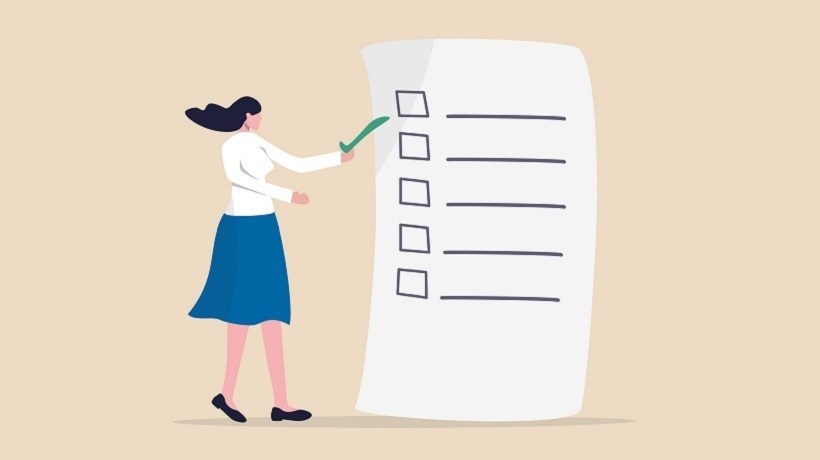Elevate Your Sales Training Program With These Assessments
Not everyone is born a salesperson, and it's not enough for your employees to have the art of persuasion to flourish in that role. Skilled sales professionals are continuously trained in order to become better by the day. Effective sales training is what creates high-performing teams and boosts profit. But how can you gauge your staff's sales skills and areas for improvement? Assessments are a critical part of your training program. They're like checkpoints throughout the process, showing you what works well and what needs some fine-tuning. Without further ado, let's explore the 4 types of assessments that are just right for your sales training program.
4 Assessment Types For A Successful Sales Training Program
1. Knowledge-Based Assessments
Knowledge-based assessments are designed to show your team's current skills and what they need to work on. This starts with a pre-training knowledge assessment that serves as a checklist before your staff starts the training program. This indicates where your team stands now regarding product knowledge, sales techniques, and the industry in general. Then, you proceed with a post-training knowledge assessment to know whether your program stuck with them. These assessments demonstrate if you've reached your training goals and what your employees learned along the way. They're also a great foundation for feedback, as you can base your comments on the post-training assessment's results. Lastly, product knowledge quizzes can be done regularly to check if your sales team knows your products' features, benefits, and selling points. Well-informed salespeople are brand advocates, so they must be familiar with products' ins and outs.
2. Skills-Based Assessments
Product knowledge isn't the only thing that makes a top-notch salesperson. They also need to apply everything they've learned on the job effectively. Skills-based assessments determine whether your sales team can face customer interactions. You can try role-playing exercises, where someone from your team will act as the salesperson and another one as the customer. This prepares them for future situations while also enhancing their communication and problem-solving skills. Sales-pitch evaluations can also help in identifying your employees' skills. You'll see if they address every customer need and their success in closing sales. Finally, checking your team's strength in handling difficult customers is also essential. Objection handling will make them more confident and better at building trust with consumers.
3. Behavioral Assessments
It's important to get to know who your employees are, just as it's important to test their skills. Your team interacts with people every day, so you need to make sure they're not rude, aggressive, or negative towards customers. Sales personality assessments help reveal your team members' personality traits. Do they have a strong sense of camaraderie? Are they reserved? This will help you tailor the training program and assign roles that fit them better. For example, if someone on your team is outgoing, you will focus their training on building communication skills and assign them a role in the frontline of customer interactions. You can also observe your team during the workday and see how they're closing sales or assisting clients. Determining how they perform in real life will give you insights into their personalities from a more practical perspective.
4. Measuring Performance
Apart from knowing how well your sales team performs before and after the sales training program, you also need to know if the program itself is successful and resonates with your company's goals. To do that, set clear Key Performance Indicators (KPIs) about what you want to achieve with your program. Is it an increase in revenue or customer ratings? Tracking the KPIs and seeing where you stand can motivate your team to try their best to achieve those objectives. Similarly, a sales performance dashboard offers useful insights, such as leads, conversion rates, revenue, etc. This way, you can decide on the spot regarding your training program's focus. For instance, if you notice that you can't reach your daily sales quota, it may be a sign that your team needs extra training on their persuasion skills.
How To Choose The Right Type
Goal Alignment
The most important aspect of implementing assessments into your sales training program is their alignment with your training goals. You don't want just to add some quizzes to tick a box. Carefully consider the above types and see which can offer you the data you need to adjust your training strategy. This process is much easier if you have clear training goals in mind. For example, your goal might be to increase monthly revenue by 10% by the end of the holiday season. In that case, your courses would focus on negotiation and communication skills, product knowledge, or objection handling. So, the best types of assessments might be knowledge and skills-based assessments.
Team Experience
Tailoring the assessments is the key to making them successful. Your team consists of people with different experience levels, from newcomers to seasoned employees, so it's unfair to test everyone in the same way. New hires may feel overwhelmed by advanced assessments, while sales veterans will get bored with basic ones. To choose the best type of assessment based on your team's experience, you can do pre-assessment profiling. This allows you to understand each employee's background and skills. For instance, they might be experienced but need to refresh their sales techniques. The same process will lead you to choose the difficulty level of assessments and ensure that everyone's training is at a reasonable pace.
Balance
Whatever type of assessment you choose, keep in mind that it's crucial to strike a balance between formative and summative assessments. Formative assessments are frequent check-ins during training. It can be a short pop quiz or a feedback session where you and the team share thoughts and opinions about the process. Yet, to see the bigger picture, you also need summative assessments. These are usually done at the end of the program to determine if it has been successful. So, depending on which point of the training process your team is at, you'll choose the most suitable assessment. However, make sure that it's not all formative or just summative. In the former case, it would feel like the training is never-ending, and in the latter case, you might not be able to make changes if the program isn't resonating with your team.
Conclusion
Assessments are the secret ingredient to creating successful sales teams, as they help to shed light on your employees' true potential. Based on that, you can create spot-on training programs and shape your staff's performance. Use the above tips to pinpoint the combination that will make your sales team top-level and boost your profit margins.








